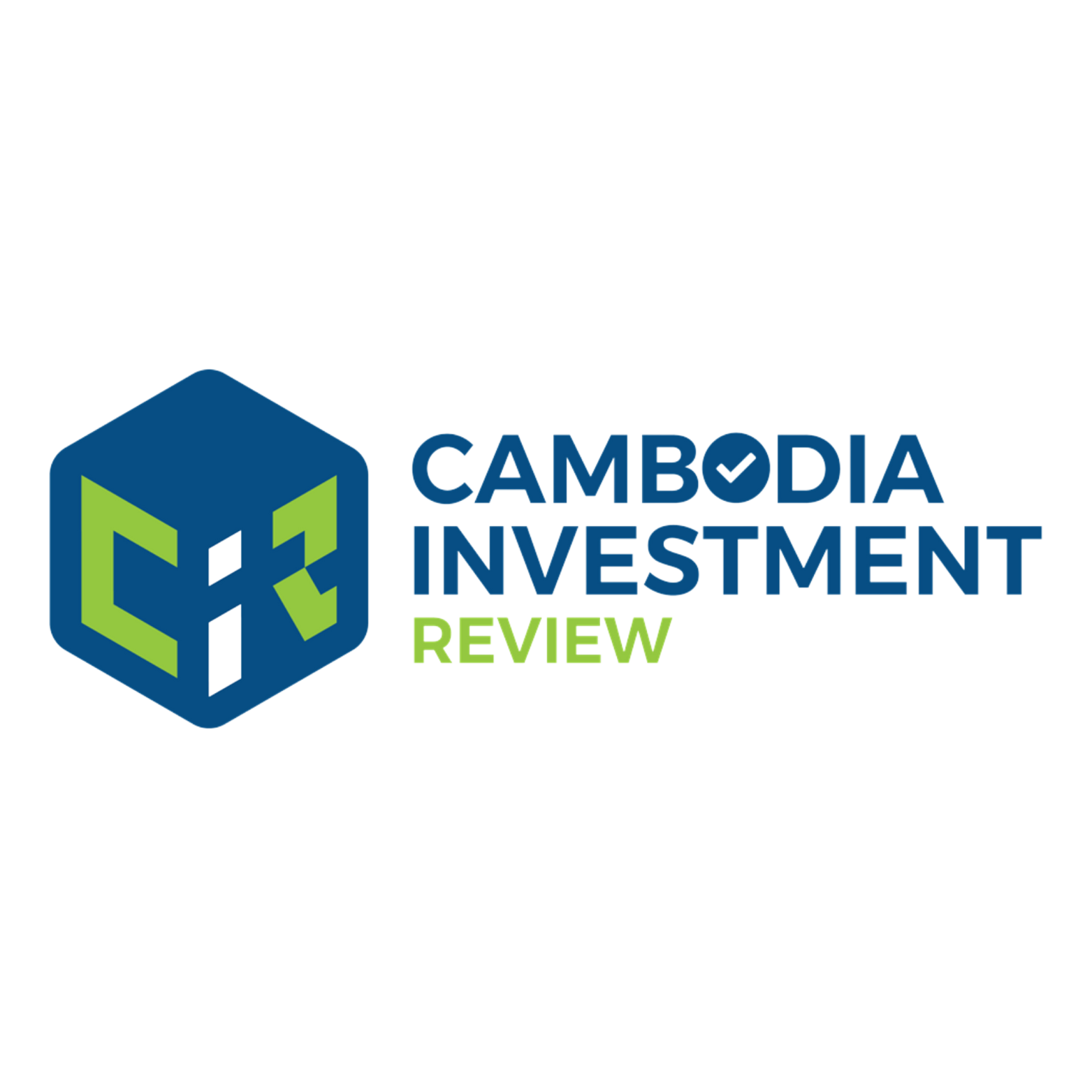While Cambodia has shown strong economic progress moving into the post-COVID era, the real estate market is still in doubt to reach pre-COVID levels in 2023. To get a better insight into the sector and the challenges and opportunities it will face this year, we spoke with IPS Country Director Adam Fitzpatrick for an expert opinion on real estate in Q1 and beyond.
If you want more information about Cambodian real estate investment opportunities, you can see the latest hot properties here. For more key sector updates from in-market consultant experts, make sure to follow us here or on our telegram channel here.
How has Cambodian real estate faired through the pandemic in terms of stability and where did that leave the sector by the end of 2022?
Adam Fitzpatrick: The pandemic was a tough time for everyone, and real estate did not escape unscathed. We saw a significant drop in inquiries and that impacted our business tremendously. As a company that has a high proportion of expatriate clients focused on the residential leasing market, to a certain extent we were quite reliant on international travel. When that suddenly stopped, with an indefinite anticipated duration, that market and that side of our business ground to a halt. What was particularly impressive was the ability of IPS to pivot into more locally-focused service lines.”
The local market was still active during COVID, perhaps more so than it normally is, as the inability to travel and seek investment elsewhere meant that a lot of transactions were occurring in Cambodia, particularly in the land market. We were also fortunate to have a strong team in Siem Reap and were working on some very good off-plan projects up there which turned out to be very popular with our overseas investors. One thing that was very interesting was that property owners in Phnom Penh didn’t adjust their pricing expectations to reflect the pandemic at all, the majority still demanded the same pre-COVID rates, whereas in Siem Reap owners tended to be more flexible and we managed to transact a number of super deals on behalf of our clients. I think the market generally weathered the storm quite well and is currently in a good place. There’s a lot of stock, which is a concern, but good projects will always do well and we’re seeing a bit more sophistication in terms of product from developers hoping to stand out from the crowd.
How did the level of transactions compare over the last couple of years, and is this expected to grow in 2023?
There were fewer transactions – absolutely – they fell off a cliff at the beginning of the pandemic but recovered relatively well as we navigated our way through those changes. I think the pandemic, for most companies, was about survival. We managed to do that, we even expanded our team and developed new service lines, but there just wasn’t any cream on top.”
That’s what has been missing over the past few years, the large transactions that are essential for a business like ours to consider itself to be doing well. We’re confident that 2023 will bring back the bigger deals as inbound foreign investment continues its recovery to pre-pandemic levels. China is a huge player in this regard.
Chinese investment in Cambodia will always be a key economic driver, across all industries, and that is likely to bounce back this year. The new measures in China were unexpected and happened very suddenly. Nobody anticipated them and as such nobody is poised to react immediately. As their impact takes effect over the coming months, I expect investors will be making decisions to deploy capital in areas that will most likely have a very positive impact on the real estate market in Cambodia. International travel from China has only just reopened with gusto and we will need to see what impact that has – on the real estate market, the economy in general, tourism and whether COVID is still something we need to worry about.
Are real estate prices expected to stabilize in Cambodia and what opportunities does this provide for investment in Cambodian real estate?
Real estate pricing in markets like Cambodia doesn’t always make sense in a traditional real estate investment scenario. If we take the price of land in downtown Phnom Penh in the open market, it’s extremely challenging to acquire a plot, speculatively develop a project and generate an acceptable rate of return. The centrally located land plots that we see advertised have asking prices that are based more on the sentiment and expectations of the owners, rather than the commercial reality of the actual value of the land.
Land is often pitched with the expectations of future growth already factored in. Once a landowner has decided what they believe a plot is worth, regardless of how they’ve arrived at that figure, that price tends to be set and there’s an unwillingness to negotiate. A major issue is that owners tend to believe that a land price is fixed regardless of size, shape, location specifics, physical attributes, accessibility, or prominence. Sen Sok is a great example at the moment – land prices are around $600 per sqm near Hanoi Road whether the plot is 200 sqm or 4 hectares – which doesn’t make any sense – but is the reality of that market. Owners also tend to expect the transaction to happen very quickly with limited time for the buyer to conduct accurate due diligence – this makes the market particularly tricky for foreign companies looking to invest in Cambodia, especially those from developed economies.
What determines Cambodia’s real estate pricing?
In terms of pricing for condos and office space in Phnom Penh, I actually feel that the market is quite stable at the moment. The concern is the amount of stock due to enter the market which we would expect to apply downward pressure on pricing. But again, that’s not always the reality. There are a number of examples of well-known high-quality office buildings in the city that have a lot of vacant space, but the landlords would rather it be empty than reduce their headline rents – which is not the nature of a traditional commercial market. They clearly have other priorities than generating income. We also see the same scenario in the residential market, which suggests the purchasers are not investing for the rental yield, but purely for capital gain or even for other reasons.
We still see good opportunities for investors in the residential market. We like a number of off-plan projects at the moment with generous payment plans. For foreigners it’s a very easy investment opportunity and totally hassle-free – we have a strong track record of managing units and securing long-term tenants. The capital gain coupled with the rental income makes it a very attractive proposition – but don’t expect to double your money flipping units in the short term.
The land also, of course. Maybe not so much in downtown Phnom Penh – the pricing is challenging – but elsewhere in Cambodia there are a lot of good opportunities. We like outer Phnom Penh and the surrounding provinces, beachfront plots in coastal locations and Siem Reap has always been a success. We also provide services for foreign buyers to acquire land in Cambodia, de-risking the purchase and providing them with a secure ownership structure. The land will always do well in Cambodia – it’s a very popular asset class and as the country continues to develop and urbanize, land prices will only go one way.
What will be the main factors influencing the growth of the sector in 2023?
Factors influencing the market over 2023 will be the global economy for sure, including all the associated increased costs of doing business, geopolitical risk, and regional tensions… all of those things are important and are definitely increasing investor caution, delaying decision making and impacting appetite for risk. I’m still very optimistic about Cambodian real estate and I do believe we’re relatively insulated from global economics.
The game-changer for Cambodia is the recent re-opening of China allowing the free movement of people both domestically and internationally.
China is hugely important to the Cambodian economy and their inability to travel and seek investment has had a major impact on the market here.
We will have to see what happens after Chinese New Year and review the extent of the spread of COVID, but all being well I feel there’s a long-awaited pent-up appetite from that market to invest overseas, travel overseas and buy international real estate – and a good proportion of that money will find its way to Cambodia. We’re already seeing an increase in inquiries from Mainland Chinese, Hong Kong and Macau-based corporations looking to reignite projects that have been indefinitely on hold over the past few years. This is where I see the biggest change, and it will be a positive growth story for the sector.
What is your advice to Cambodia real estate investors in 2023 given the current state of the market?
Remain cautious but be brave, seek professional advice and guidance, negotiate hard and do your due diligence. There are plenty of good opportunities in the market, but you have to understand real estate in Cambodia and the nuances of doing business here. If you want to make a splash in the commercial market, do your research, find a trusted agent, and focus on relationships with advisors, and good opportunities will be introduced in time.
If you’re an individual looking for a personal investment it’s an easier proposition, but either way, we’re here to help and provide professional guidance, and market-leading expertise. Independent Property Services (IPS) has grown to be the premier real estate company in Cambodia, with offices located in Phnom Penh and Siem Reap providing premium real estate opportunities and catering to the local and ex-pat market.
IPS was founded by David Murphy, back in 2009 when real estate transactions in Cambodia were still time-consuming, complicated, and expensive. We had one vision in mind: to be the all-in-one source of professional real estate services in Cambodia. We aim to build long-lasting relationships with our clients and be trusted advisors in their journey to find the perfect property. Our goal is to be a leader in the Cambodian real estate industry, consistently exceeding the expectations of our clients and setting the standard for excellence in real estate services. Our agents are superstars and some of the most experienced, successful, and best-performing real estate professionals in the market.
What are some of the top investment opportunities in Cambodian real estate at the moment?
We’re working on a number of exciting new projects. Off-plan opportunities include ODOM, Times Square 306, and Circle Village with additional projects coming soon. New projects in Siem Reap include Rose Apple Square and Angkor Grace – both of which we like and are having a lot of success at. Quality income-generating assets offer a lot of appeal but are very hard to find. I still like land but competing with local buyers is tough so finding a good opportunity remains a challenge. Hun Sen Blvd offers some good land leasing opportunities for commercial occupiers but acquiring land probably isn’t commercially viable – it is still a great option for foreign entities looking to take advantage of that growth corridor.
Here at IPS we have some great coastal land plots for resort development for sale which I expect to do very well as that market matures and develops. For top picks, we have a dedicated section on our website that highlights what we call hot properties , which are opportunities that we believe offer great potential in the current market.
Thank you to Adam Fitzpatrick for his time giving us a valuable insight into the real estate market in 2023. The next section will involve other opinions from the sector and are not contributed by Mr. Fitzpatrick.
What are the challenges faced by Cambodian real estate in 2023?
Some actors within the sector have said that an oversupply of property in the market means that developers should consider waiting to complete buildings. Mr. Marc Townsend, CBRE’s Cambodia chair, said that another solution could be repurposing them into alternative markets such as student or backpacker accommodation.
Mr. Townsend added that the Kingdom’s effective approach to managing the pandemic means that the economy is better placed than many countries, and the return of GDP growth will not eliminate the excess supply currently present within the country’s real estate market. He said the reason for this is because there was just too much supply too soon, and there just aren’t enough occupiers for the space in the country, adding that this creates an overhang in many sectors which needs to be chewed through.
He advised that this can be done if people decide to drop their prices, offer better terms and conditions or they’re convert the spaces into something else.
According to CBRE’s research, at the Cambodian real estate market’s 2019 peak over 1,400 construction projects were approved, whereas the figures for 2022 are below 600 – a difference explained by excess supply, particularly among higher-end properties.
The findings also showed that the number of colleges and universities in Phnom Penh meant there is potentially a largely untapped market for student accommodation, with a focus on lower-end market options his key recommendation for developers.
What are the key tips for Cambodian developers in 2023?
According to a CBRE report, a focus on lower-end market options is needed.
In one part of the report, findings showed that the number of colleges and universities in Phnom Penh meant there is potentially a largely untapped market for student accommodation,
There are over 35 colleges and universities in Phnom Penh and the Cambodian capital is home to an ambient student population of over 200,000, all of whom typically live at home, rather than in purpose-built accommodation as is the norm in many countries, meaning an opportunity is being missed.
Another area covered was the rising demand for hostels. It said that a combination of post-covid travel demand among backpackers and the closure of many low-cost facilities during the pandemic will continue to see demand for hostels soar in 2023, with the former seeing much higher occupancy rates in the near future than four- or five-star hotels.
The report said that backpacker hostels were one of his favorite asset classes and that he would invest in them because he expected the post-Covid recovery in business and luxury travel would be gradual as professionals and entrepreneurs focus on their work in the current uncertain economic environment.
The occupancy rate in backpacker hostels like Boracay, Luang Prabang and Siem Reap are experiencing 80-90% occupancy rate, with food and beverage margins of 50%. Developers might want to consider this before building a four- or five-star hotel.
How does Cambodia’s real estate market compare to neighbouring countries?
A report by CBRE said that while there may be opportunities in the Kingdom’s real estate market, international investors are still favouring Vietnam in the near term for following main two reasons:
- Private equity investors prefer Vietnam currently because they see the Cambodian market as illiquid
- Firms are also concerned about their ability to bring money out of the country, which can prove very challenging.
What are the positive signs for real estate in Cambodia in 2023?
Some real estate experts have said that 2023 is a great year to invest as property prices in 2023 are expected to increase considerably compared to the previous year.
CBRE Cambodia Associate Director Kim Kin Kesa said that investors, particularly those with high capital and expecting longer-term returns, should look to invest in land with development potential.
She said when the economy recovers this will be a fruitful investment, but as long as investors are aware of the geographical and economic factors in the area. Giving an example, she noted the difference between central areas of Cambodia’s capital, Phnom Penh, as having potential for commercial and high-end residential development, whereas suburbs on the outskirts would be more for industrial and affordable housing.
She continued that the investment period in these sectors can be medium and long, so the investor should study and prepare their capital well before investing.
“2023 will be a good year to invest in real estate for those who have high capital and expect long-term returns, as property price in 2023 is expected to rise much compared to 2022.”
“Potential investors should look to invest in land in areas with long-term development potential, the reason being that investing in land could be very profitable given a full economic recovery in the coming years,” she added.
Where can I find information about real estate investment in Cambodia?
You can get the latest hot properties – from commercial to residential and everything in-between – on the IPS website, a trusted partner of Aquarii.
You can also get the general market information from Aquarii, the expert Cambodian in-market consultancy, or the latest bite-size news updates through our trusted partners Cambodia Investment Review.





